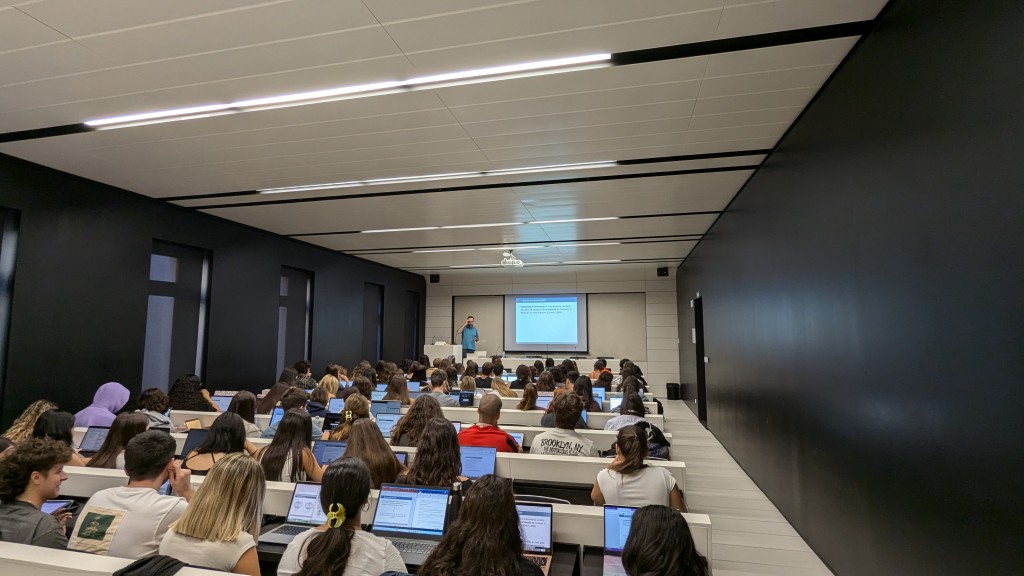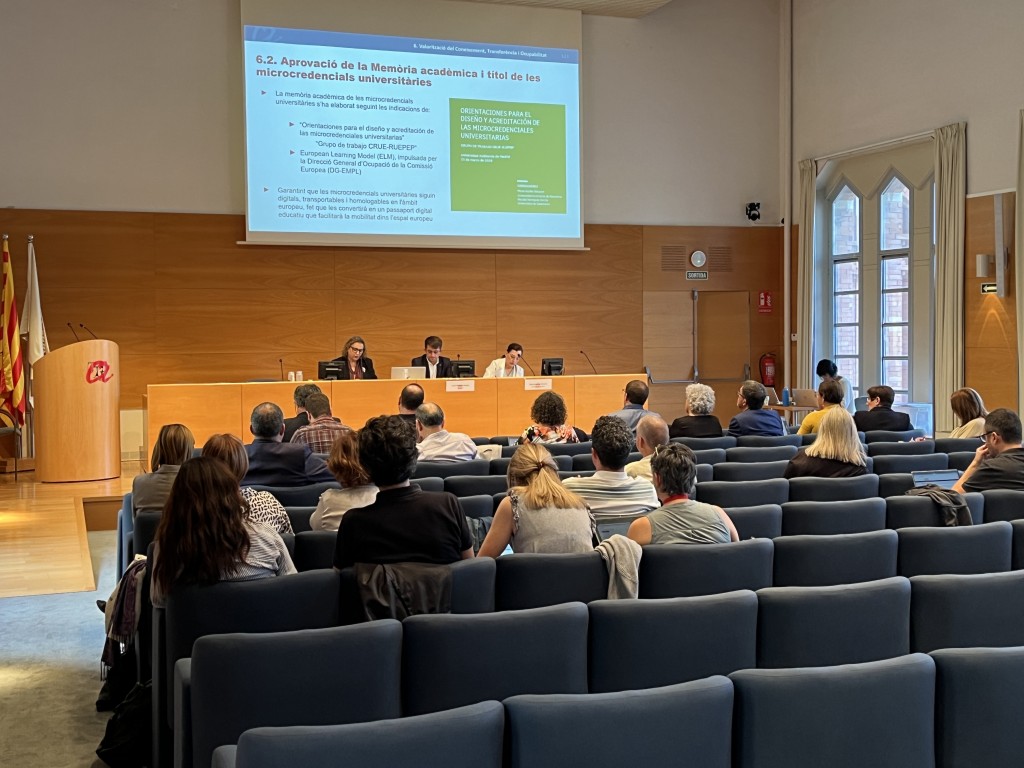Press notes 22/10/2024
The URV will offer micro-qualifications co-designed with companies and recognized at a European level
On Tuesday, the Governing Council approved the first of these advanced digital training qualifications, which are aimed at meeting the demands of the local manufacturing sector

On Tuesday, the Governing Council approved the first of these advanced digital training qualifications, which are aimed at meeting the demands of the local manufacturing sector
The Univeristat Rovira i Virgili, through the URV Foundation’s Centre for Lifelong Learning, will offer its first university micro-qualifications in Front-End Web Development, developed in collaboration with CaixaBank Tech, Incapto, and the South Catalonia ICT Cluster. The URV is the first university to bring the requirements of the PlanMicrocreds, which follows European standards and strategies, into line with the needs of the local manufacturing sector.
The URV will now generate advanced digital qualifications in conjunction with local companies, an initiative that represents a significant step forward in the educational and professional transformation of the region because it offers training tailored to the specific needs of the business sector.
University micro-qualifications will be awarded for short courses (fewer than 15 credits) and will be digital, transferable, and recognized across Europe, making them an educational digital passport that will facilitate mobility within the EU. These short courses will be co-designed with local companies and entities to identify, promote, and retain talent, contributing to transforming the Camp de Tarragona region into a hub of opportunity.
A micro-qualification is a postgraduate certificate. Some of them will be accessible without a prior university degree, thus allowing all individuals, whether they have a degree or not, to benefit from these courses and acquire new skills or enhance their existing ones. The courses will be modular, meaning that students can complete and combine various modules as part of a personalized training pathway that will lead to a broader, more comprehensive qualification in the end.

The micro-qualifications will use the European Learning Model (ELM), promoted by the Directorate-General for Employment of the European Commission (DG-EMPL), thus allowing them to be easily verified and recognised throughout Europe and bringing them into line with labour market needs by facilitating the upskilling (i.e. greater preparation for the current job) and reskilling (i.e. training for a new job) of professionals in growing sectors. In this way, the URV is positioning itself as a key player in transforming manufacturing sectors and facilitating the transition toward a new situation in Europe defined by the Digital Strategy and the Green Pact.
The project is supported by the Office of the Vice-Rector for Knowledge Valorisation, Transfer, and Employability, the ICT Resources Service, and the Commissioner for Open Government and ICT at URV, along with participating companies.
Equality and Research Reports
The Governing Council also approved the call for seven Serra Húnter lecturer positions in the Departments of Pedagogy, Psychology, English and German Studies, Computer Engineering and Mathematics, Communication Studies, Chemical Engineering, and at the School of Architecture. Rector Josep Pallarès also announced the hiring, by June 2025, of 68 new lecturers.
Additionally, the council approved the recognition of the honorary doctorates proposed for the 2025/26 academic year, with special consideration for contributions to the URV’s visibility and impact. The council also approved a proposal to enable the exploitation of the cafeteria in the Faculty of Tourism and Geography, which is currently closed due to viability issues and which will be handled by Vila-seca Town Council.
Participatory Budgets
Triennial Plan of the Social Council
